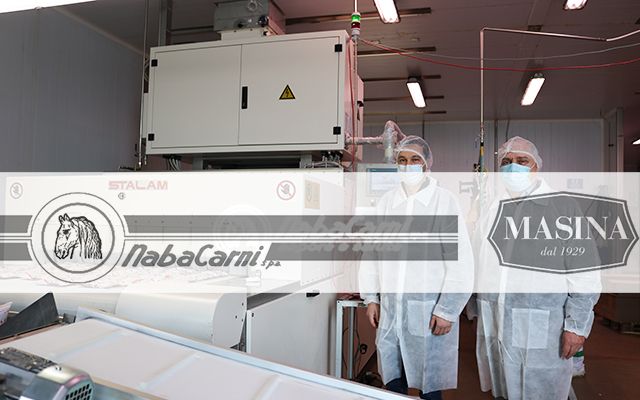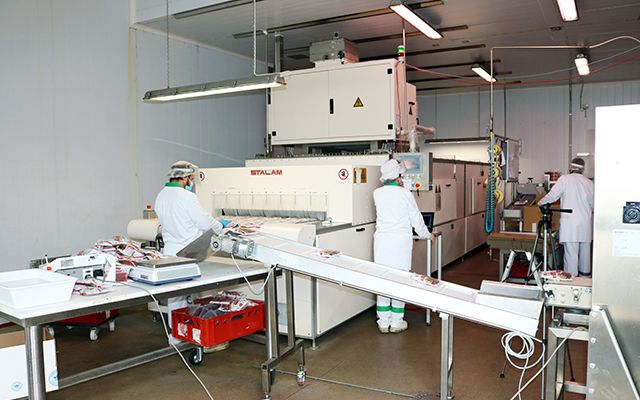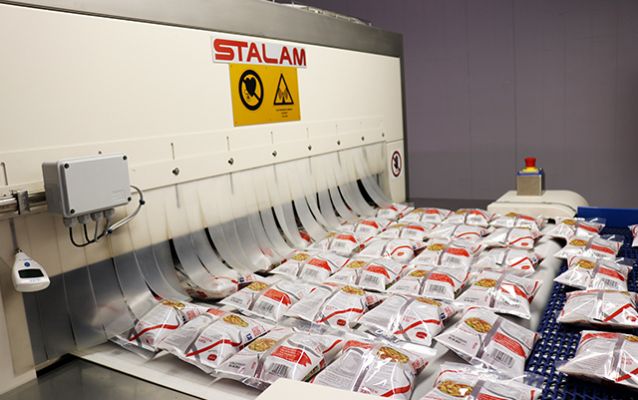


Naba Carni S.p.A. is a market leader in the production of sliced and frayed cured meat in Italy and Europe. The company has a covered area of 5,500 sqm and 70 employees.
Pasteurization of sliced dried meat was carried out in a traditional way, directly in the conventional oven, to reduce Salmonella and Listeria, which are potential threats to human health. The process temperature required (up to 90 ° C) generated excessive drying of the meat, negatively impacting the sensorial properties of the product. Furthermore, variations and increases in the production flow used to cause frequent overloads in the oven, leading to uneven temperatures that negatively affected the consistency of the microbial reduction.
Naba Carni contacted Stalam for a safer and more efficient process solution. The R&D departments of both companies have joined the efforts to develop a new pasteurization protocol based on the radio frequency technology, suitable for both the product and the packaging.
Stalam has then manufactured a tailor-made SANIPACK+ equipment for the new Naba Carni production line at Europe Meat plant in Resana (TV).
“Thanks to the SANIPACK+ radio frequency equipment, the process is now rapid and uniform, with significant benefits for the entire production flow“, says Paolo Cavasin, CEO of Naba Carni. “The product is treated at a lower temperature in just a few minutes, eliminating the risk of over-drying and increasing the product yield“.
Stalam R&D manager Michele Bicego confirms: “Following some tests, we have developed an operating cycle to reach the target temperature uniformly in a short time. The final product quality has improved significantly both in terms of quality and appearance (the meat now retains a beautiful bright red color). Furthermore, the microbiological abatement result is exceptional: over 6 logs reduction on Listeria!”.
The process was validated by the Food Technology Laboratory of San Donà di Piave, a section of “Istituto Zooprofilattico Sperimentale delle Venezie” (IZSVe), an Italian public health institute.
The current high standards of microbiological safety have allowed Naba Carni to extend the product shelf-life from 90 to 150 days, leading to the acquisition of new important customers in the retail segment, along with a 40% increase in sales.

